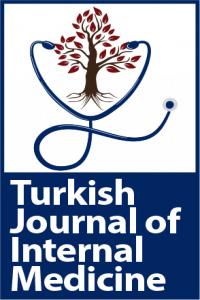
Turkish Journal of Internal Medicine
Yazarlar: ["Nursel TÜRKOĞLU SELÇUK", "Füsun ÖNER EYUBOĞLU Bu kişi benim", "Nevra GÜLLÜ ARSLAN", "Mehmet HABERAL Bu kişi benim"]
Konular:-
DOI:10.46310/tjim.1110191
Anahtar Kelimeler:Solid organ transplant,Immunsupression,Pulmonary infections
Özet: Background Kidney transplantation recipients are at an increased risk of lung complications due to infectious or non-infectious reasons. We aimed to determine the lung complications after transplantation and what we could do to prevent the complications during the follow-up, retrospectively. Material and Methods The 296 patients who underwent kidney transplantation surgery in our centre between the years 1999 to 2006 were included in the study. Results 75% of the patients were male (n: 222). 77% of the patients (n: 228) had a living-related donor. The mean hospitalisation duration in the post-transplantation period was 13.3±9.07 days. During the follow-up, 37.2% of the patients (n: 110) had rejection, and pulse steroid treatments were given to the 74.5% of these patients. In our study, the lung complication development ratio was 16.2%, and 84% of these complications were due to infections. A specific aetiology was not identified in 63.5% of patients. The patients with a living-related donor had more lung complications due to infection (p<0.05). We determine that the hospitalisation period following transplantation increases lung complication development (p<0.05). The patients with pulse steroid treatment had more lung complications (p<0.05). Conclusions We showed that close follow-up of the patients prevents lung complications, and non-invasive diagnostic methods could be the first considered choice. In addition, our study showed the importance of a multidisciplinary approach to solid organ transplantation patients during the evaluation of complications.